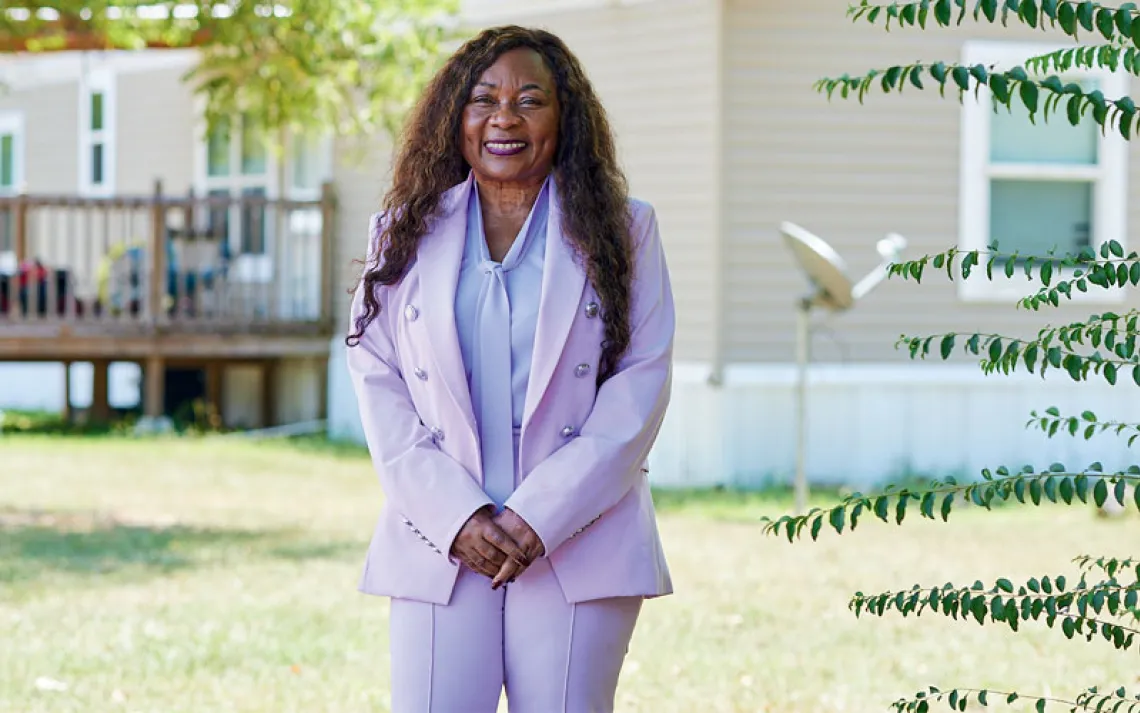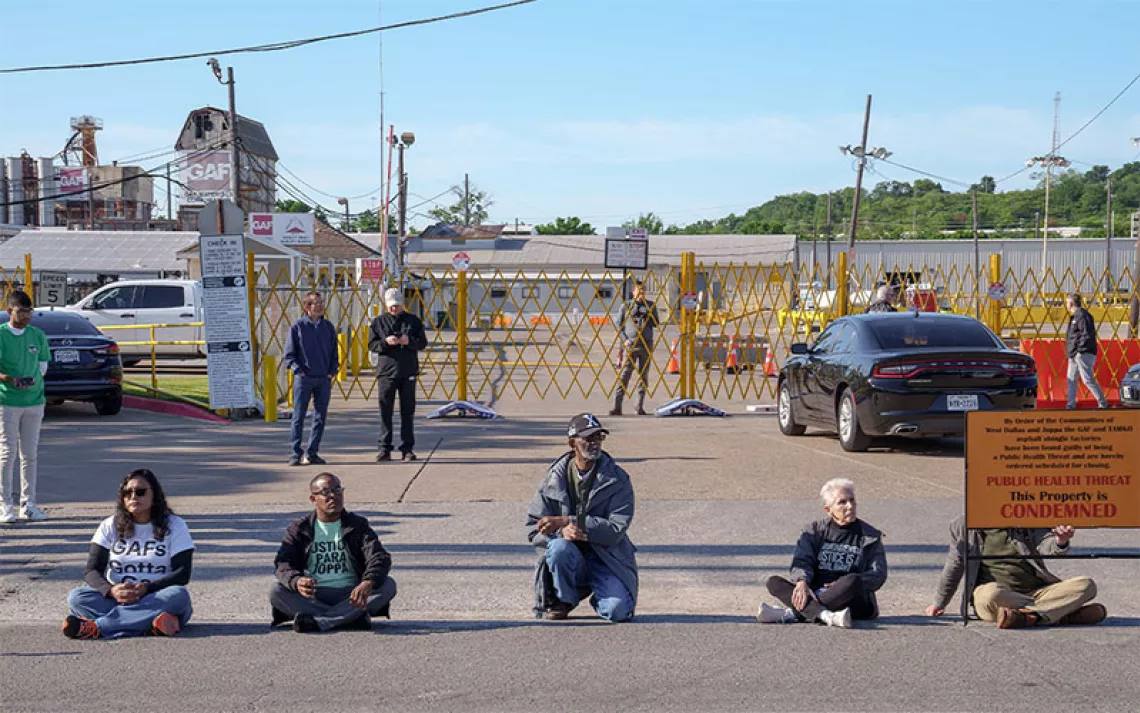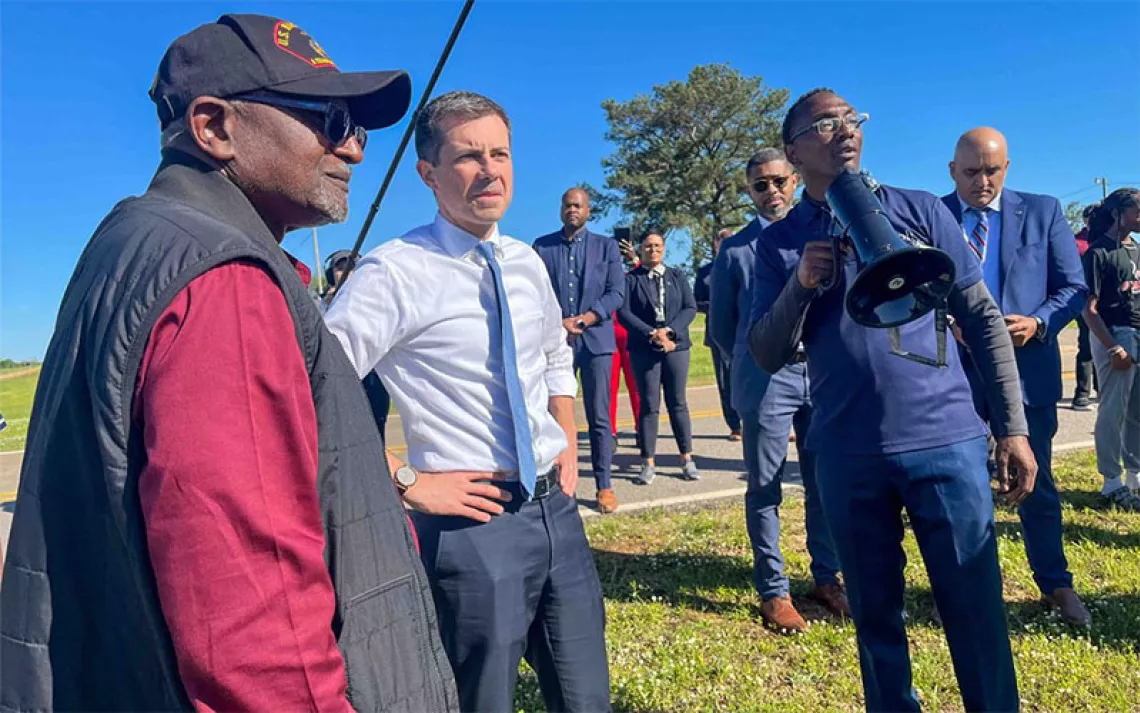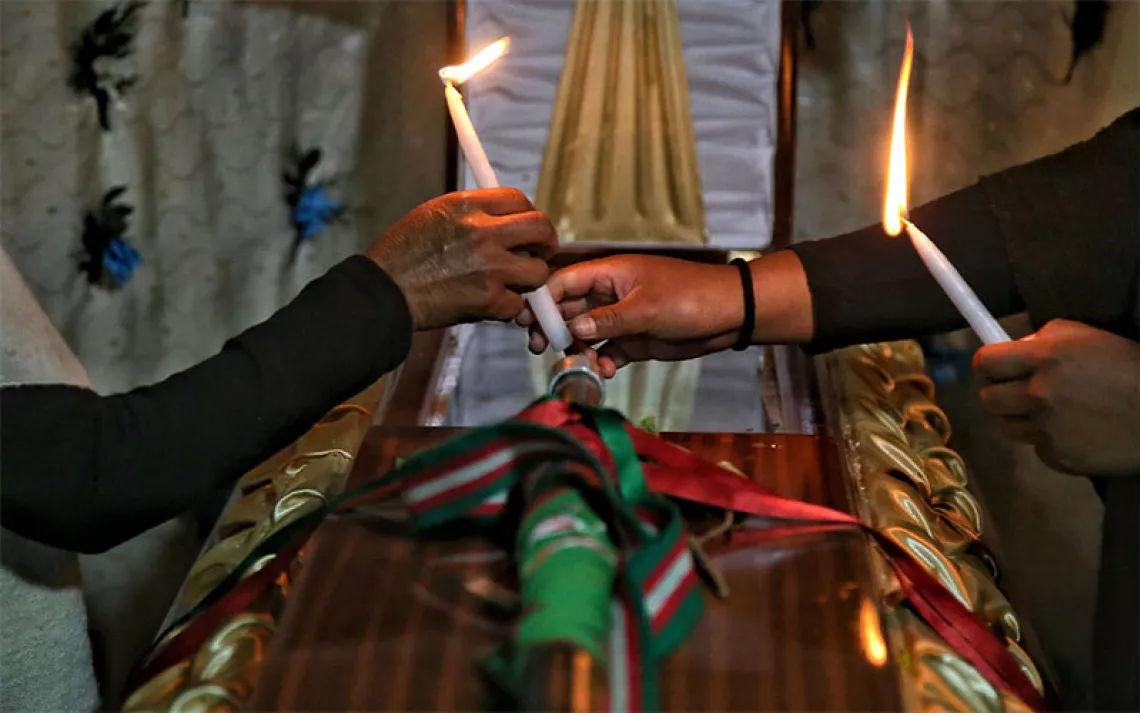How LGBTQI Folks Are Reclaiming Space on the Land
These queer farmers and land stewards put community first
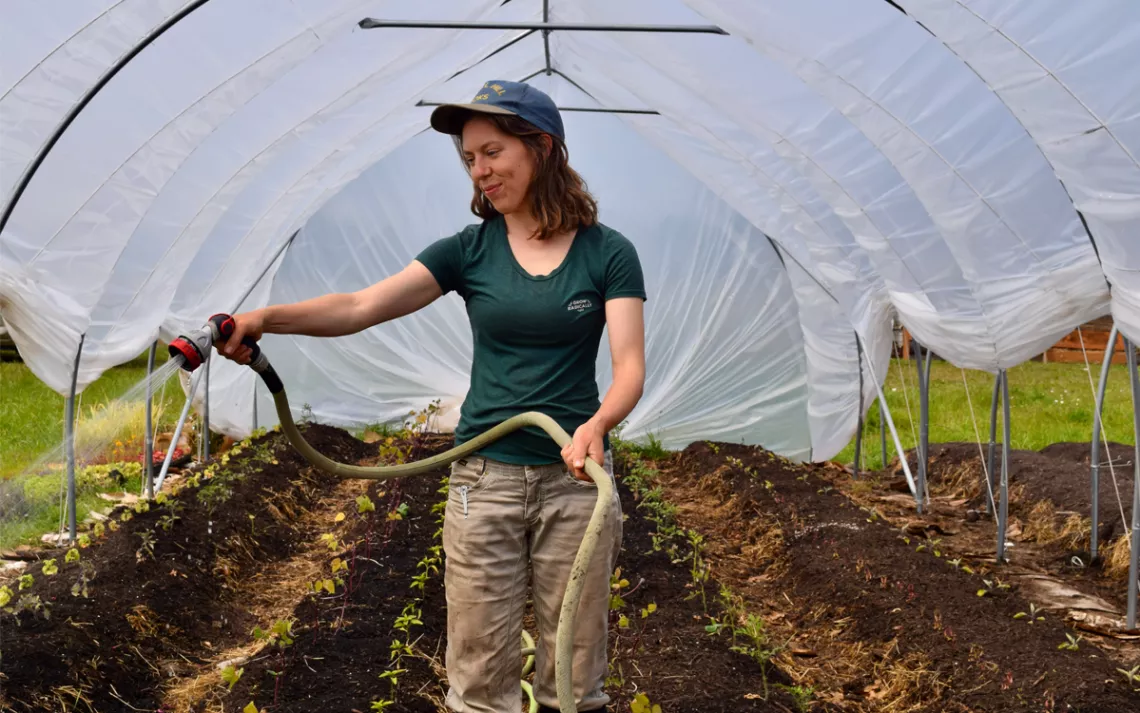
Photo by Ryan MacDonald
It’s the middle of spring, and Arleen Jenson has a few things on their mind. A lack of recent rain, for one. And, the bottleneck of greenhouse crops that still need transplanting.
Jenson, who is trans and nonbinary, co-operates and co-runs SisterLand Farms, a no-till, one-acre farm in Port Angeles, Washington. Springtime brings an endless-seeming list of farm chores. This season, Jenson and their fellow farmers are also finalizing logistics for a countywide kitchen composting program. Soon, they’ll be picking up their community’s food waste and hauling it to the farm to turn into compost.
“We’re the only people doing this in the county, which is not a revolutionary thing elsewhere,” they said. Last year, SisterLand workers hauled away nearly 20,000 pounds of waste that would have ended up in a landfill. This year, Jenson hopes to collect 35,000 pounds.
It’s this type of social activism and community engagement that Jenson had in mind when they founded the farm in 2018. With a mission to “grow radically,” SisterLand Farms is rooted in an understanding that “you can’t just isolate the cultivation of food,” they said. Their priorities as a farm owner include paying workers a livable wage, offering educational opportunities to the community, and creating summer camps for LGBTQI adults.
“A lot of what SisterLand does seems unrelated to providing lettuce and cucumbers,” they said. “Because community comes first.”
*
That perspective aligns Jenson with a vibrant cohort of LGBTQI farmers and land stewards, including many people of color, reimagining their work in more sustainable, communal, and intentional ways. “What we’re trying to bring back up to mainstream collective society is this Indigenous notion that land can only be healthy if communities are in intimate relationship with it,” said Niko Alexandre, one of the cofounders of Shelterwood Collective, a Black, Indigenous, and LGBTQI-led healing retreat center in Northern California that takes a community-centric approach to land care.
Alexandre and Shelterwood Collective cofounder Layel Camargo have spent the last year tending to 900 acres of forest near the Russian River—it’s unceded Kashaya and Southern Pomo territory—while renovating long-neglected infrastructure. This summer, they will host student fellows and community organizations for workshops and learning sessions on topics including forest ecology and chainsaw skills.
“A big piece of our work is around reclaiming practices that are often unsafe for us to access as queer folks and people of color,” Alexandre said, noting that many of these skills are typically taught by cisgendered, white men in places that can be unwelcoming. “We are hoping that in 10 to 15 years, we can see many BIPOC land groups that are doing the large-scale land management that we are doing now,” added Camargo.
*
But land access remains a common barrier for many LGBTQI and BIPOC individuals. Prices can be prohibitive. “There was a three-acre farm that went up for sale, and it was sold within a day, and it sold thousands and thousands of dollars over asking,” recalled Anita Adalja of Albuquerque, New Mexico.
Adalja and their fellow queer farmers run Ashokra Farm in Albuquerque’s North Valley. Together they have two decades of farming experience. Still, they lack the financial resources to purchase enough land to grow on a large scale. It can rankle to watch other farmers acquire property more easily. “We’ve farmed for other people who are cis-white men and have no trouble getting land,” they said. “People are just throwing land at them, or so it seems.
Today, Ashokra Farm operates as a patchwork of plots spread out across several private residences and a community garden. They grow everything from radishes and cabbages to 13 different varieties of okra. But the logistics of managing dispersed parcels are not easy. (“I mean, I can’t tell you how many times we forget a tool somewhere,” Adalja said.) Since the US Department of Agriculture doesn’t include LGBTQI individuals in its category of “socially disadvantaged farmers,” they aren’t eligible for the federal assistance that could offer a leg up.
“There’s really important policy that is made at the federal level based on the federal government’s understanding of marginalization in agriculture,” said Dr. Ike Leslie, an environmental sociologist and postdoctoral research associate at the University of New Hampshire. Leslie, whose work specializes in social justice, environmental sustainability, and food systems, argues that the government’s understanding is flawed. They praised organizations including the Northeast Queer Farmers Alliance and La Via Campesina for a recognition that conversations about land access and food systems must come from a multiracial, intersectional stance, something the 1960s-era “back-to-the-land movement” largely failed to do. “The same forces that make racism systemic to the food system are the same forces that are starving LGBT+ people,” Leslie said.
The issue of land access was top of mind for Alexandre and Camargo when they decided to found Shelterwood Collective in 2017. After attending a week-long immersion program for Black and Latinx farmers at Soul Fire Farms in Albany, New York, they began reflecting on how land stewardship was imperative for future generations of Black, Indigenous, POC, and queer communities to thrive. “It all comes back to land,” said Camagro. “Everything from food to clean water, clean air, safe shelter. Everything always comes back to having access to land.”
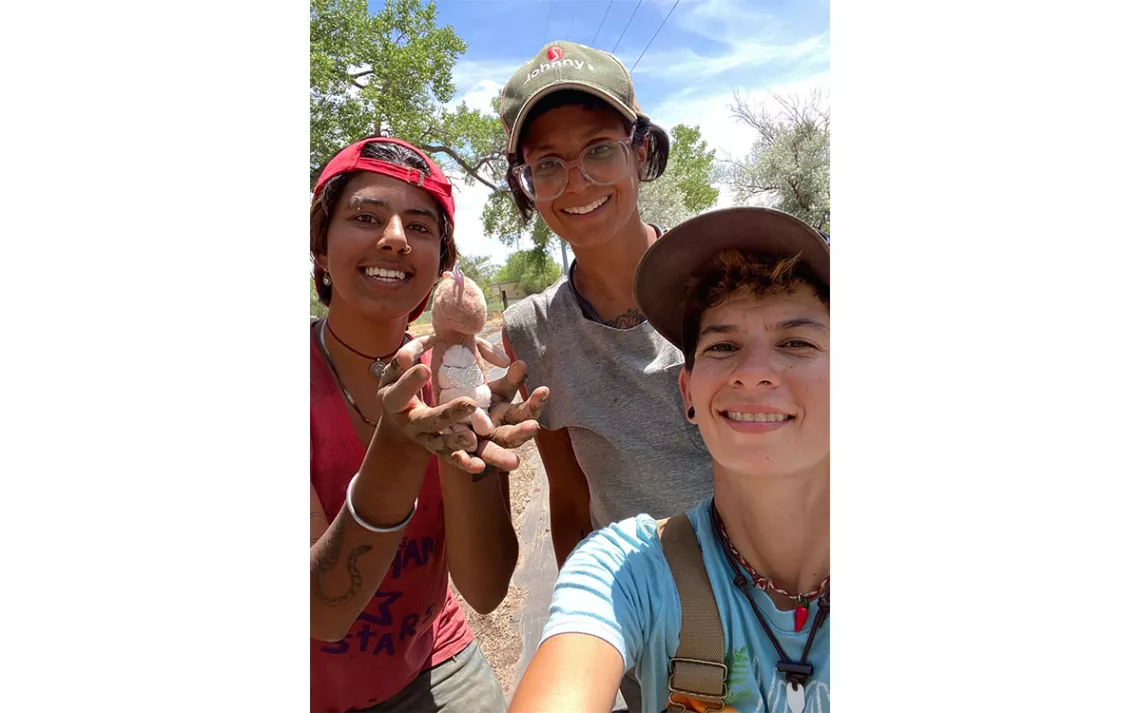
Farmers at Ashokra Farm. | Photo courtesy of Ashokra Farm
It’s not clear just how many LGBTQI farmers are working across the country, because they are not singled out in the most recent USDA Census of Agriculture data. In a 2020 paper published by the journal Society and Natural Resources, Iowa State University professor Katherine Dentzman argued that while more information is needed to understand the trend, queer farmers were “more prevalent than expected” in the United States.
Online, the hashtag #QueerFarmers reveals folks from around the country reimagining agricultural life. Some of them are farming veterans who carry decades of soil under their fingernails. Others are just starting out. There are growers in rural areas with acres of farmland, and others who live near urban centers, reclaiming abandoned parking lots and backyards for community gardens where they hope to harvest food for their loved ones.
“I think the political climate in this country has probably been a big reason why a lot of queer people are wanting to do farming,” said rookie farmer Laurel Variam of Ashfield, Massachusetts. “To have a secure home base, to have skills that will help them survive no matter what happens,” they said.
Variam, along with their fellow farmers Ezra Greenfield and Jey Barnes, founded Crooked Moon Farm in 2020, focusing on growing perennial fruits and vegetables and native species that benefit local ecology, they said. These include peaches, plums, blueberry bushes, and a grove of pawpaw trees.
As a team, they’ve also been learning new skills from some older queer mentors and connecting not only to their local community but also to a much broader coalition of queer farmers nationwide. They went to the Queer Farmers Network conference in Vermont and made some important friends and connections. Farmers' groups on Facebook have been another source of collaborators.
“Our interest in finding a place where we could put down some roots was building some survival skills for ourselves and our community and being able to have space where we could take people in,” added Greenfield. “So for us it’s very much about becoming part of a community, part of a network.”
Similarly, Ashokra Farm is building a farming space that reflects their values, starting with a zero-tolerance policy for abusive language, something they endured for years while working for other land owners. At previous farms, Adalja remembers having no access to a bathroom and “having to go in the bushes,” they said. “Having to deal with menstruating bodies on the farm and then being around cis-white men in rural areas can be quite scary . . . Ashokra exists as a space for us to kind of heal from all that and also do what we want to do, which is grow food.”
Inside their farm’s composting toilet is a list of values, which include respect for expansive gender identities, combatting perfectionism, and supporting collaboration. That toilet is a kind of symbol, signaling to their community and anyone else who pays them a visit. “It’s literally a toilet that gives us so much cause for celebration,” said Adalja, of the toilet that they built themselves. “But it’s also a flag for other people to be like, ‘Hey, this is a safe space.’"
For Adalja, that sense of safety is part of the mission. “The reason that Ashokra exists, and the reason we started the farm, was because no space prior existed where we felt safe or we felt the ability to be our true selves,” she said. “We are creating the spaces where we can exist.”
This article has been updated since publication.
 The Magazine of The Sierra Club
The Magazine of The Sierra Club
